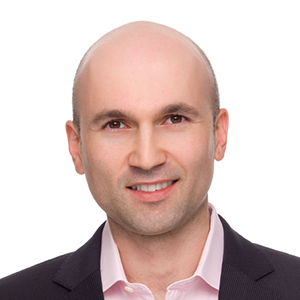
02 Jan Interview with Ilya Michael Rachman of Immix Biopharma Inc.

Dr. Ilya Rachman is a physician-scientist and clinical faculty at UCLA. He received both his MD and PhD in neuroscience and cell biology from the University of Illinois-Chicago, and his MBA from UCLA Anderson. Previous to Immix, Dr. Rachman founded a clinical research organization that conducted clinical trials on behalf of pharmaceutical companies. He has completed several clinical trials as a Principal Investigator and is a co-inventor of Immix’ platform therapeutic technology. Read his full bio.
Interview with Ilya Michael Rachman of Immix Biopharma Inc.
Q: The Nobel Price in Medicine was awarded recently to James Allison and Tasuku for their work on unleashing the body’s immune system to attack cancer, a breakthrough that has led to an entirely new class of drugs and brought lasting remissions to many patients who had run out of options. The Nobel committee hailed their accomplishments as establishing "an entirely new principle for cancer therapy." Besides CAR T-cell therapy what do you think next generation immunotherapies will look like to successfully combat cancer?
A: The next generation of immunotherapies will build on the insights discovered by immunologists like James Allison and Tasuku Honjo and extend them to modify the body’s response to tumors. The envisioned therapies will reduce the tumor’s ability to attract metabolic and structural support from tissue fibroblasts, endothelial cells, and others by blocking inflammatory signals emitted by tumors in order to attract such support. Another rapidly evolving field is the clonal expansion of tumor-specific T effector cells with the concomitant suppression of tumor-specific T reg cells, tilting the balance of the immune response towards cancer elimination.
Q: What are the products and/or services Immix Biopharma Inc. offers/develops to address or support the next generation of immunotherapies? What makes Immix Biopharma Inc. unique?
A: Immix Biopharma develops therapies that suppress cancer’s ability to sense its environment and produce inflammatory mediators which co-opt the immune system and other cells in the tumor microenvironment. These therapies deprive cancer of the vital nutrients, new blood supply and immune protection required for cancer cells’ survival and expansion. Immix’s lead drug, Imx-110, is currently providing early proof of concept data for this from our ongoing Phase 1/2a trial in metastatic refractory solid tumors. The uniqueness of our approach is that it treats metastatic cancer as a form of a disseminated infection – the drug is designed to preferentially access and induce apoptosis in cancer cells while disinhibiting the immune system from eradicating the residual tumor.
Q: What are the short-term challenges that Immix Biopharma Inc. and its peers are facing?
A: One challenge is the lack of the readily available PD biomarkers that can detect early anti-tumor response while providing a window into the tumor-immune system interactions. Also, as commonly happens, novel innovative approaches face challenges getting sufficient funding early on to demonstrate their maximal potential. As we are approaching the completion of our Phase 1b, we are working hard to raise capital to fund the phase 2 portion aimed at demonstrating the statistical efficacy of our approach in hard-to-treat tumor types.
Q: What is your role at Immix Biopharma Inc. and what excites you about your work?
A: I am a co-founder and CEO of Immix Biopharma and am excited to share that we are very close to a new era where cancer becomes a well-managed chronic disease akin to HIV or diabetes, with extended remissions or even cure not too much farther out into the future. The early data coming in from our human and veterinary trials makes me optimistic that we are close to that goal.
Q: Is there anything else you would like to share with the PMWC audience?
A: One question I would like to raise in the mind of the audience – are there fundamental mechanisms of evolvability that underlie cancer’s unique ability to evolve and evade the various treatment approaches we throw at it? And if we can elucidate these mechanisms, how can we effectively target them in order to break the viscous cycle of cancer resistance emergence?






